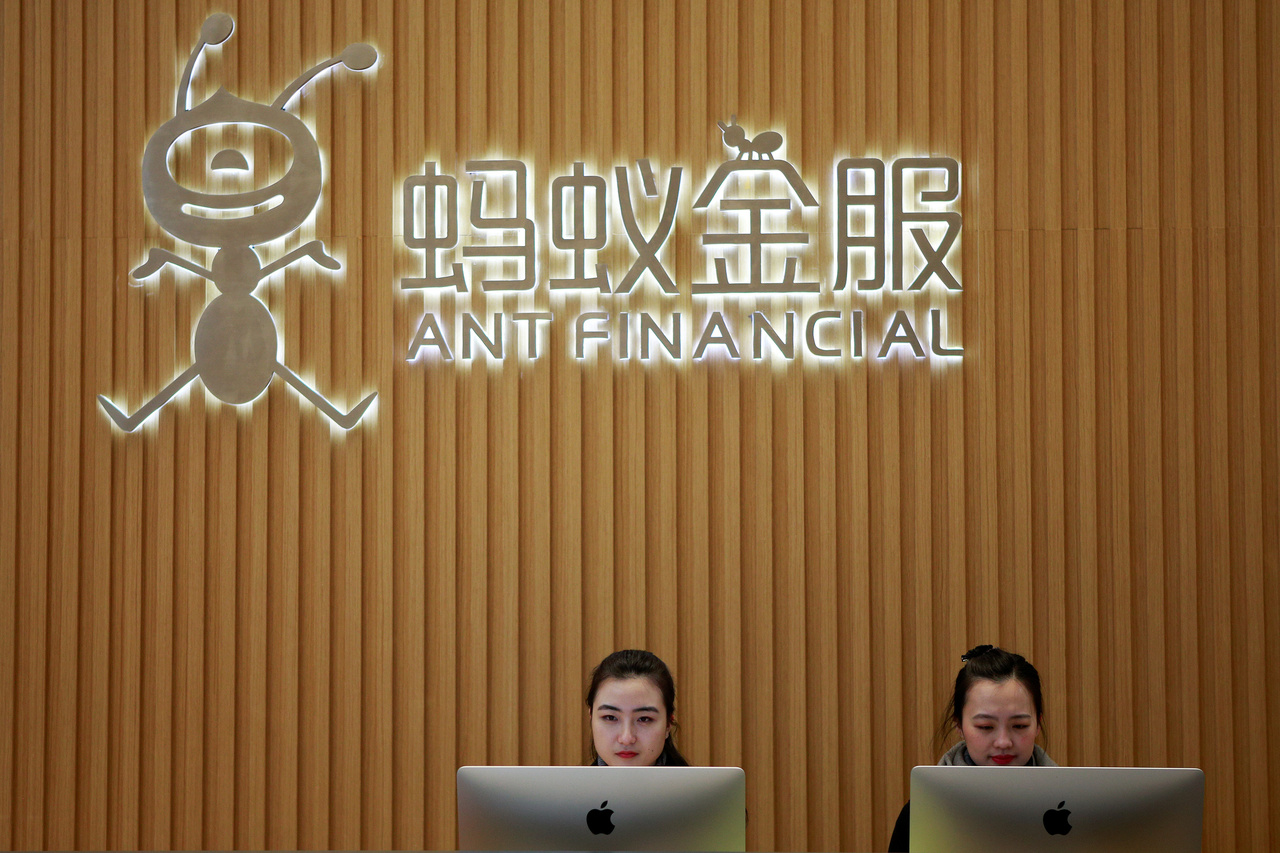Super rich get richer on Ant after striking early deals with Jack Ma
Sign up now: Get ST's newsletters delivered to your inbox

Ant is seeking to raise US$30 billion in Hong Kong and Shanghai in an October listing.
PHOTO: REUTERS
Follow topic:
HONG KONG (BLOOMBERG) - Jack Ma's Ant Group is creating a new group of super wealthy people in China while also giving a boost to some older fortunes globally.
Hong Kong's Li Ka-shing, the family behind a French supermarket giant, the son of a Taiwanese real estate billionaire and Chinese retail tycoon Shen Guojun are among those invested in the online payments provider, which may be valued at US$225 billion (S$308.5 billion) when it goes public next month.
This wasn't just some one-off tech bet. They'd all established relationships with Mr Ma's empire before Ant's financing round two years ago, along with Thailand's Chearavanonts, the Tungs of Hong Kong and Lu Zhiqiang of China Oceanwide Holdings Ltd.
At least seven tycoons put in almost US$700 million combined, with returns that could reach 50 per cent based on Ant's targeted valuation, according to a Bloomberg analysis of the firm's IPO (initial public offering) prospectus.
"Family offices aren't scared to change their investment methodology as a response to the digital world," said Sankar Krishnan, executive vice-president of banking and capital markets at Capgemini in New York. "They want to invest in the world's most-valuable fintech."
Ant is seeking to raise US$30 billion in Hong Kong and Shanghai in an October listing that could top Saudi Aramco's record US$29 billion offering last year. It could make 55-year-old Mr Ma - a member of the Communist Party - one of the world's 10 richest people, while also boosting the returns of several US private equity firms.
Mr Li, Hong Kong's richest man, began a tie-up with Ant in 2017, when his flagship company agreed to form a joint venture with the fintech giant to offer a digital wallet in Hong Kong, now available in more than 50,000 local retail outlets. The following year, two of Mr Li's vehicles participated in Ant's financing round.
It's a similar story for Yin Chung-yao, the son of Taiwanese mogul Samuel Yin, and France's Mulliez family, who control the Auchan chain of grocery stores. Before they invested in Ant, Alibaba Group bought a stake in Chinese hypermarket operator Sun Art Retail Group. from Mr Yin's Ruentex Group while Auchan Retail raised its ownership.
The Chearavanont's Charoen Pokphand Group announced a joint venture with Ant in 2016; Tung Chee-hwa, a former Hong Kong chief executive, has been on Alibaba's board since 2014; Mr Shen, who's known to be close with Mr Ma, already had a business connection with him in 2013, while Mr Lu's Oceanwide and Mr Ma's investment vehicle were part of a consortium that bought Caesars Entertainment's online casino-style games unit in 2016.
"The world's wealthiest families are often avid investors," said Rebecca Gooch, director of research at Campden Wealth in London. "Growing companies benefit from wealth holders' unique knowledge, deep pockets and patient capital. Wealth holders benefit from the high returns, access to cutting-edge innovation and technology, portfolio diversification and, for direct investors, greater control."
Except for Mr Lu, the tycoons subscribed to shares in Ant International that can be exchanged for Ant Group stock on a 1:1 basis upon listing. Mr Lu, who got in as an onshore investor, directly owns Ant shares.
Ant, as well as representatives for Mr Tung, Mr Yin and CK Hutchison Holdings, the flagship of Mr Li's business group, declined to comment. The Mulliez family, CP Group of the Chearavanont, Mr Shen's China Yin Tai Holdings and Mr Lu's Oceanwide didn't respond to requests for comment.
The offering is poised to turn a number of current and former executives of Alibaba and Ant into billionaires, including Ant chairman Eric Jing. It offers a potential windfall for US private equity firms including Silver Lake Group, Warburg Pincus and Carlyle Group, which each invested about US$500 million or more in the 2018 funding round.
Credit Suisse Group and a vehicle of venture capitalist Lee Kai-Fu, the former head of Google's Chinese operations, are also set to benefit after putting in about US$80 million and US$30 million, respectively.

